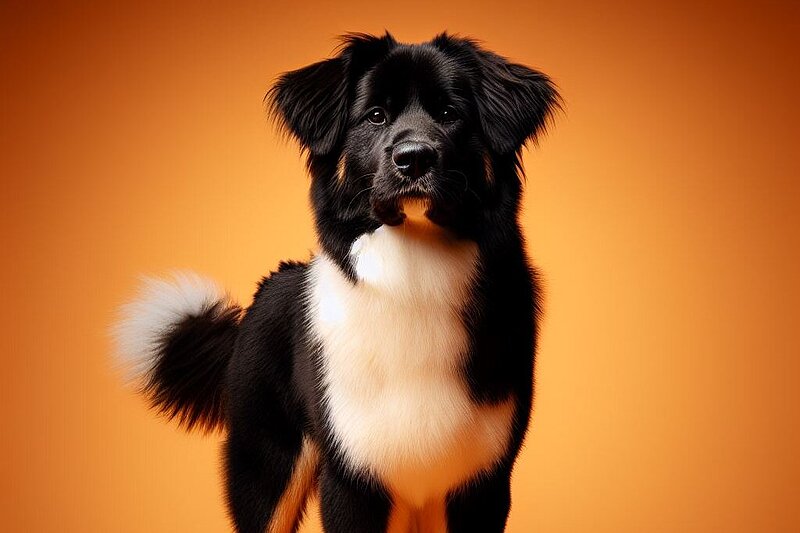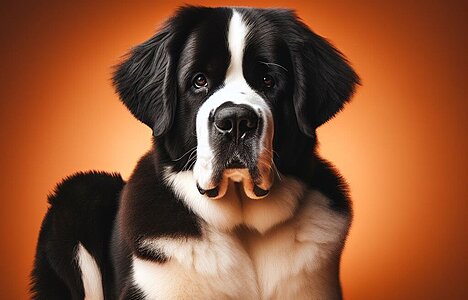The Kokoni: the little Greek dog with the big heart
Historical roots: a look into the past
The history of the Kokoni stretches far back into antiquity. In Greece, small dogs such as the Kokoni were already depicted in ancient works of art and mosaics. The name "Kokoni" means "small dog" in Greek and describes the manageable size of this breed. Originally, Kokonis were kept as guard dogs and companions, valued for their alertness and affection.
Who is the Kokoni suitable for?
The Kokoni is an ideal dog for families, singles and seniors. Thanks to its small size and adaptable nature, the Kokoni is perfectly suited to life in the city as well as in the countryside. The breed is known for its patience and friendliness, which makes it a great companion for children. Older people also appreciate the Kokoni due to its uncomplicated nature and low maintenance requirements.
Character: A heart of gold
Kokonis are known for their cheerful and affectionate character. They are extremely affectionate and bond strongly with their families. These dogs are intelligent, curious and have a strong personality. Despite their small size, they are courageous and alert, which makes them good watchdogs. They bark at unfamiliar noises, but are not overly loud or aggressive.
Appearance: Small but mighty
The Kokoni is a small dog, usually growing between 25 and 38 cm tall and weighing around 4 to 8 kg. Their body is well proportioned and they have a muscular build. The Kokoni's coat is medium length, dense and can come in a variety of colors and patterns, including white, black, brown and mixed. Their large, expressive eyes and fluffy ears give them a particularly cute appearance.
Care: little effort, lots of fun
The Kokoni is relatively easy to care for. Its coat should be brushed regularly to prevent matting, especially if it is longer. A weekly brushing is usually sufficient. Ears should be kept clean and dry to prevent infection and teeth should be brushed regularly to prevent dental disease. As Kokonis are small dogs, they do not require extensive walks, but they do enjoy daily activities and play sessions.
Health: Robust and resilient
Kokonis are generally a healthy breed with a life expectancy of around 12 to 15 years. There are no specific genetic diseases associated with the breed, but as with all dogs, it is important to have regular veterinary check-ups and ensure a balanced diet.
Exercise: Active, but adaptable
Although the Kokoni is active and playful, it does not need hours of walks. Short, regular runs and sufficient playtime are enough to keep these little bundles of energy happy. They adapt well to life in an apartment as long as they get enough exercise and mental stimulation.
Training: With patience and love
The Kokoni is intelligent and learns quickly, which makes training easier. They respond well to positive reinforcement and loving consistency. Early socialization is important to ensure they get along well with other animals and people. Obedience training and learning basic commands should be part of the training to ensure harmonious coexistence.
Behavior: Friendly and social
Kokonis are friendly by nature and get on well with children and other pets. They are social and enjoy being part of family life. Their playful nature and patience make them ideal playmates for children. They also generally get on well with other dogs and cats, especially if they are accustomed to them from an early age.
FCI recognition: a regional peculiarity
The Kokoni is not currently recognized by the Fédération Cynologique Internationale (FCI), but is valued and registered by national Greek canine organizations. However, this does not detract from their popularity and value as loyal companions.
Information
Country of origin
Appearance
Height at withers
Weight
Life expectancy
Breeding
FCI-Group
Similar to Kokoni
These dog breeds look similar to the Kokoni or resemble it in character.




